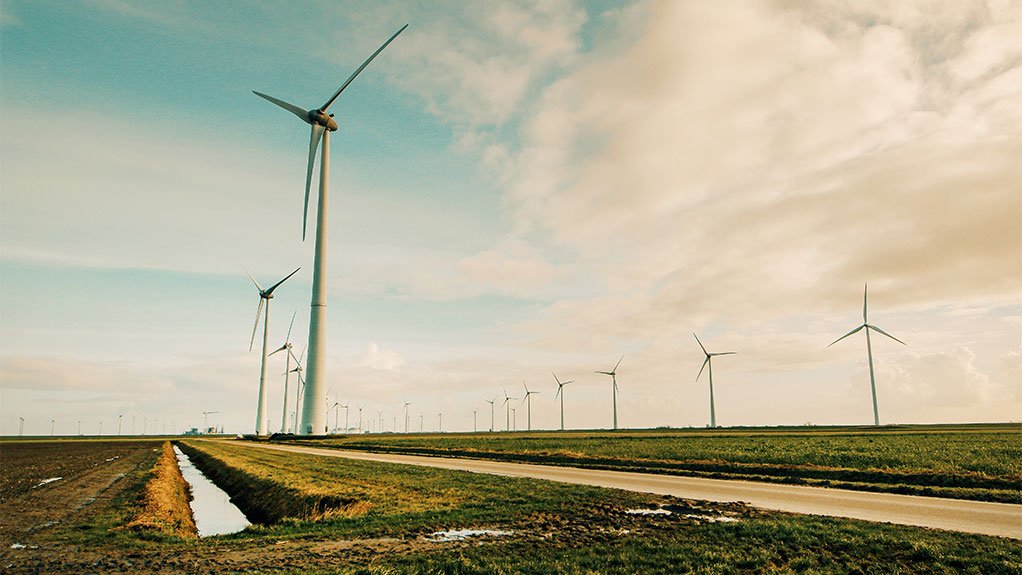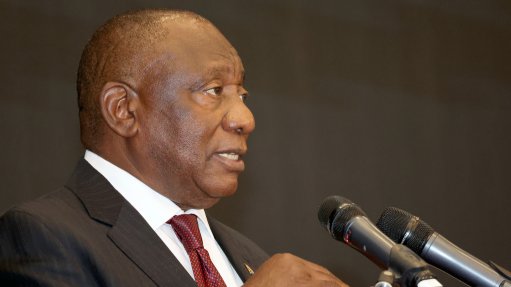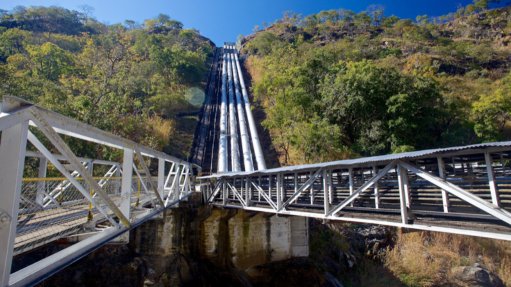Tapping into Africa’s new energy frontier: Socially responsible green electrons



ED Platform’s Socially Responsible Green Electrons concept ensures that energy development is intrinsically linked to core socio-economic development and progress in Africa.
ED Platform’s Keneilwe Mohlala has been promoted from Principal – Audits to Head of Operations
Access to affordable and reliable energy across Africa is a crucial driver of economic and social development. Without it, agricultural productivity, food security and industrial development are hindered, and the delivery of critical public services such as healthcare and education are limited, culminating in a lowering or a hindering of quality of life for citizens.
Sub-Saharan Africa still has an electrification rate as low as 46%, with some 906-million people in 2019 across the region still lacking access to simple technologies, such as clean cooking fuels (World Bank, 2021a; WHO, 2021).
Fossil fuels (oil, gas and coal) supply most of Africa's energy, with oil being the second largest source of primary energy, particularly in transport, industry and power generation (IRENA and AfDB, 2022). However, Africa’s abundant renewable energy sources, coupled with the fact that many local economies are not reliant on fossil fuel industries, means that there is a huge potential and opportunity for African economies to leapfrog and transition their economies into those driven by sustainable and renewable energy.
Indeed, new energy technologies are poised to expand across the continent. With the exception of hydropower, modern renewable energy technologies – solar, wind, geothermal and modern bioenergy – still contribute only marginally to Africa’s energy mix. Africa accounts for just under 3% of the world’s installed renewables-based electricity generation capacity – this percentage can increase exponentially given Africa’s large resource potential (IRENA, 2021a). In line with global ambitions to achieve the UN’s Sustainable Development Goals (SDGs), this transition to renewables-based energy supply must build in socio-economic development as core to infrastructure roll-out.
Tapping into Africa’s modern renewable energy sector offers abundant opportunities. It can power the economy of Africa’s future while helping to restore environmental sustainability. It can act as a catalyst for broad-based social and economic development. And universal access to modern forms of energy is central to meeting several of the SDGs.
But how can this be made a reality? Too many promises have been made in the past. One solution after the next has been touted as the panacea to addressing Africa’s sustainable development challenges. Solutions must be adapted to specific national and sub-national contexts, including resource potential, development experiences, socio-demographic patterns and institutional capacities. They must be supported by well-designed industrial and labour market policies that drive economic diversification and local value creation.
This is where economic development advisor ED Platform’s Socially Responsible Green Electrons (SRGE) concept finds its purpose and grounding.
SRGE is energy produced by modern renewable energy infrastructure that has high social and environmental impact which clearly demonstrate support towards the SDGs. SRGEs must be co-developed with national and regional governments, alongside other stakeholders such as communities and civil society, and must include data-driven Environmental, Social and Governance (ESG) metrics. This must happen as early in project lifecycles as possible, so that the philosophy is embedded into project design as well as contractual arrangements with offtakers and project contractors similarly.
SRGEs are fundamental to achieving a just transition, and should form part of a portfolio of interventions for governments, donors and other financiers to achieve both electrification and equitable socio-economic development.
Power Purchase Agreements (PPAs) play a key role in the development of SRGEs. PPAs are long term contracts between an electricity generator and a customer, usually a utility, government or company. The opportunity at hand, and an emerging trend in the burgeoning private PPA market, is for critical ESG targets to be written into these agreements – but they should not be “off the shelf” targets. Rather, these ESG targets must be developed in collaboration with key local, regional and national stakeholders, and be relevant to the country’s needs and challenges, as well as ensuring the infrastructure within its locality is managed in a reasonable and prudent manner. The world renowned Renewable Energy Independent Power Producer Procurement Programme (REIPPPP) spearheaded by the South African government’s Independent Power Producer Office (IPPO) laid the foundation for the embedding of socio-economic imperatives into the procurement of renewable energy infrastructure.
For example, some renewable energy projects, in particular large-scale hydropower dams, can interfere with local ecosystems and communities’ traditional forms of managing their land and have unfavourable effects on the climate, making it important to include such social and economic considerations into the planning of infrastructure from an early stage in project development.
Developing renewable energy projects require transparent, inclusive decision-making to maximise benefits and minimise harm to the environment and to local communities, as well as ensure a healthy relationship between infrastructure and its locality. In addition, local content requirements in their broad sense, and incentives can accelerate a just energy transition by ensuring demand for domestic products, services (IRENA and AfDB, 2022) and participation.
Southern Africa has been the leading renewable energy industry in Africa, hosting around a third of the continent’s total renewable energy installed capacity in 2020 (17 GW), followed by North Africa with an installed capacity of 12.6 GW (IRENA, 2021a). South Africa in particular has been leading the private PPA industry, which has seen significant growth in the last two years as a result of key legislative and regulatory changes implemented by the State. The lessons learnt and best practices in South Africa can be applied to assist the renewable energy industry (both private procurement as well as public procurement) across the rest of the continent.
ED Platform has, for over a decade, been supporting utility-scale renewable energy projects and market participants in Southern Africa to tap into Africa’s energy frontier by planning for and executing on the delivery of what are in effect SRGEs.
ED Platform is a market-leading economic development advisor that has the experience, dynamism and expertise to deliver creative solutions and true impact. A critical feature to develop SRGEs is for ESG claims to be backed up and go beyond compliance. ED Platform assists clients to do this by:
- Articulating the benefits of the infrastructure project for all stakeholders;
- Quantifying these benefits and setting a performance benchmark; and
- Demonstrating or providing the evidence of these benefits.
This approach and philosophy are in line with ensuring that claimed benefits are tangible and transparent. ED Platform advises clients on how to integrate data-driven ESG impact targets and measurement at the very beginning of a project to ensure they are embedded into projects’ ways of working and DNA. Data-driven ESG impact claims are also integrated into the financial close-out process, the contracting and final hand over to stakeholders, to maximise the social, environmental and economic benefit of electrification.
By developing SRGEs in modern renewable energy projects, clients can tap into Africa’s new energy frontier and ensure that energy development is intrinsically linked to core socio-economic development and progress in Africa, helping countries achieve their sustainable development objectives in a just way.
A just and inclusive energy transition will be incomplete without tackling widespread energy poverty on the continent and redressing the injustice inherent in Africa having the lowest per capita energy consumption in the world. Creating SRGEs with ED Platform’s help is an important factor in simultaneously addressing the continent’s energy needs and accelerating the region’s social and environmental development.
Get in touch today with one of our seasoned advisors via our website (www.edplatform.com), where you will also find detailed information on our service offerings.
Written by ED Platform Head of Advisory Maloba G Tshehla.
Article Enquiry
Email Article
Save Article
Feedback
To advertise email advertising@creamermedia.co.za or click here
Press Office
Announcements
What's On
Subscribe to improve your user experience...
Option 1 (equivalent of R125 a month):
Receive a weekly copy of Creamer Media's Engineering News & Mining Weekly magazine
(print copy for those in South Africa and e-magazine for those outside of South Africa)
Receive daily email newsletters
Access to full search results
Access archive of magazine back copies
Access to Projects in Progress
Access to ONE Research Report of your choice in PDF format
Option 2 (equivalent of R375 a month):
All benefits from Option 1
PLUS
Access to Creamer Media's Research Channel Africa for ALL Research Reports, in PDF format, on various industrial and mining sectors
including Electricity; Water; Energy Transition; Hydrogen; Roads, Rail and Ports; Coal; Gold; Platinum; Battery Metals; etc.
Already a subscriber?
Forgotten your password?
Receive weekly copy of Creamer Media's Engineering News & Mining Weekly magazine (print copy for those in South Africa and e-magazine for those outside of South Africa)
➕
Recieve daily email newsletters
➕
Access to full search results
➕
Access archive of magazine back copies
➕
Access to Projects in Progress
➕
Access to ONE Research Report of your choice in PDF format
RESEARCH CHANNEL AFRICA
R4500 (equivalent of R375 a month)
SUBSCRIBEAll benefits from Option 1
➕
Access to Creamer Media's Research Channel Africa for ALL Research Reports on various industrial and mining sectors, in PDF format, including on:
Electricity
➕
Water
➕
Energy Transition
➕
Hydrogen
➕
Roads, Rail and Ports
➕
Coal
➕
Gold
➕
Platinum
➕
Battery Metals
➕
etc.
Receive all benefits from Option 1 or Option 2 delivered to numerous people at your company
➕
Multiple User names and Passwords for simultaneous log-ins
➕
Intranet integration access to all in your organisation



















